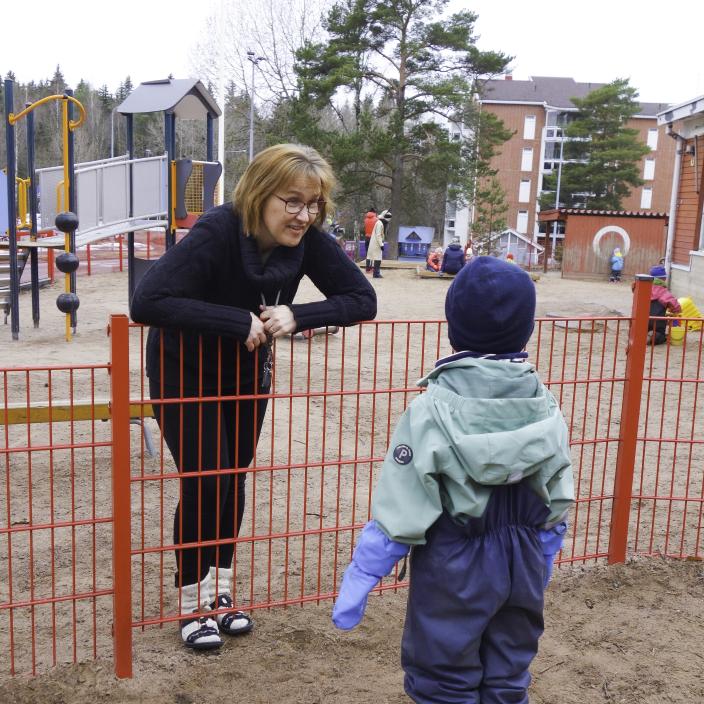Levels of support
In early childhood education and care in Turku, different forms of support are used at all levels of support according to the child's needs. The operating methods and learning environments of early childhood education and care are adapted to the child’s individual needs. The support measures are planned in a way that the child’s participation, the right to learn, and inclusion in the peer group are realised.
General support is part of everyday life in early childhood education and care. Receiving this level of support does not require separate assessments or decisions. General support is recorded in your child’s jointly prepared early childhood education and care plan.
General support consists of individual forms of support.
In early childhood education and care, intensified support is provided when general support is not sufficient. Intensified support is more personalised and stronger than general support. Support measures will start as soon as the need for support arises. Intensified support is provided for as long as your child needs it.
In early childhood education and care, special support is provided when intensified support is not sufficient. Special support is provided in your child’s day-care centre by reducing the group size or by providing additional personnel resources and pedagogical support. In Turku, special support may also be implemented in a special group.
In Turku, the role of special needs teachers is emphasised in the organisation, guidance and practical provision of special support. Your child is entitled to special support as soon as the need for support is observed.
Contact information for special needs teachers at day-care centres is available at your child’s day-care centre.
Multidisciplinary cooperation
The objective of multidisciplinary cooperation is to identify children’s support needs as early as possible and to organise support for children and families as necessary.
In Turku, cooperation between ECEC actors and child health clinics is carried out mainly through maternity and child health clinics. The maternity and child health clinic is an early and low-threshold place of support where the need for multidisciplinary support can be assessed and support measures can be started.
In addition, your child can receive support through the family counselling centre, child welfare services, the paediatric neurology outpatient clinic, Turku University Hospital, and various disability and therapy services.
Read more on Support for Learning in Turku (in Finnish)
Helppi Team
The Helppi team is a multidisciplinary team that travels between ECEC and pre-primary education locations in Turku, supporting the day-care centre staff in everyday challenges. The team includes a special needs teacher in early childhood education and care, a social worker in early childhood education and care, a day care worker, and an occupational therapist.
If additional support is needed in a day-care centre, the staff contacts the head and the special needs teacher of the day-care centre in order to submit a support request. In day-care centre units without an in-house special needs teacher, the staff can contact a regional special needs teacher.
The support units are selected based on discussions between the Helppi team and the Special Services Manager.
For more information, contact the employees of your child's day-care centre.
Placed children in early childhood education and care and pre-primary education
Sisukas is an operating model that ECEC actors and child welfare can utilise when a child living in foster care starts in early childhood education and care.
Children in foster care have often experienced many losses and changes in their lives, which increases the risk of social exclusion. Success in early childhood education and care may have a direct impact on their well-being in adulthood. According to studies, support in early childhood education and care reduces the risk of social exclusion, which is what the Sisukas model focuses on.
Early support
The Sisukas model helps foster children to better adapt to changes and integrate into early childhood education and care. Early support provides the child with an opportunity to start again and experience success.
Individual support through cooperation
Many types of children live in foster families and institutions, and their needs vary. The Sisukas model emphasises multi-actor cooperation between ECEC and substitute care. The social worker is responsible for ensuring that the child’s right to early childhood education and care and necessary support are realised.
Turku has developed the Sisukas model together with Pesäpuu ry and the social and health centre project in Southwest Finland. The aim of the model is for adults close to the child to work together from the very beginning of foster care.
